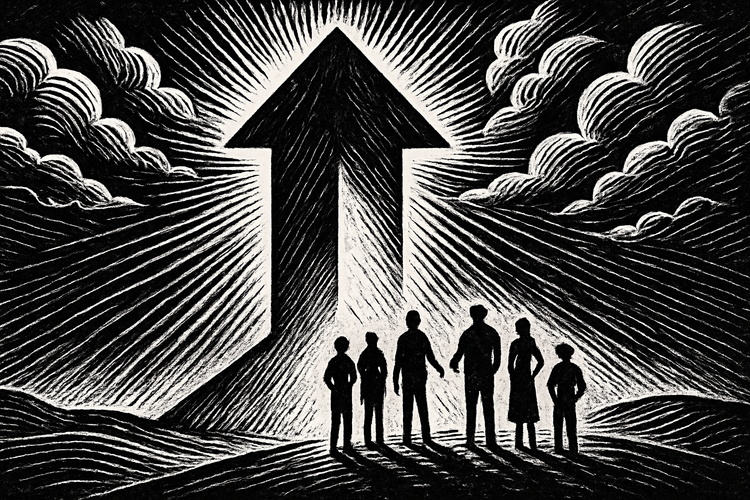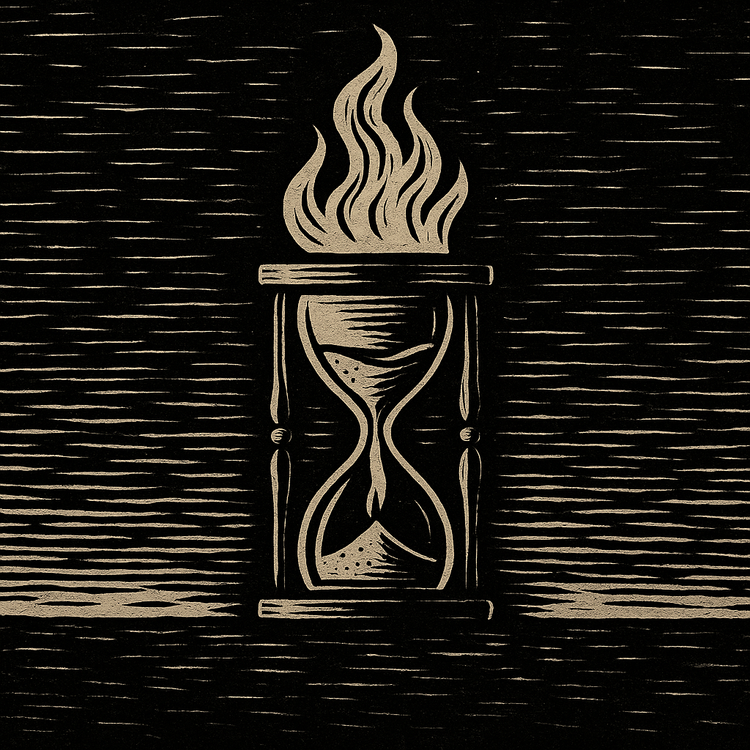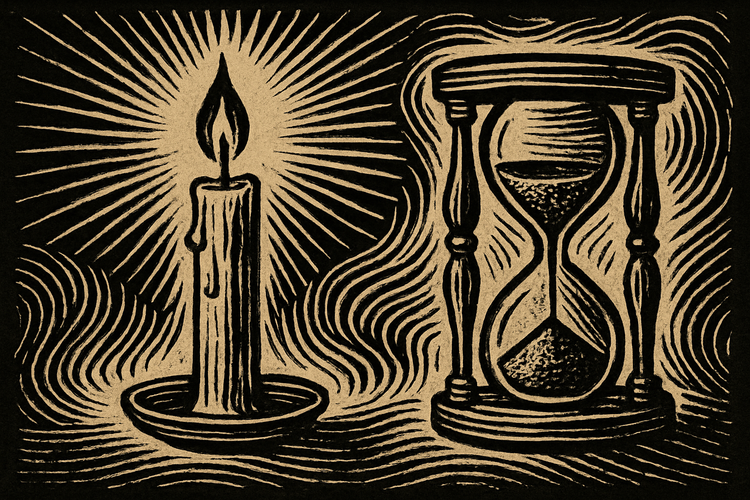The Good Place S1E5 - “Category 55 Emergency Doomsday Crisis”

Spoiler Warning: This reflection contains full spoilers for The Good Place, including retrospective insights and thematic allusions. It assumes familiarity with the entire series and is written from the perspective of a rewatch.
For all its wild aesthetics and cosmic shenanigans, The Good Place is a show about small, internal movements—imperceptible shifts in how people understand right and wrong. In “Category 55 Emergency Doomsday Crisis,” those movements begin to matter. The neighborhood is cracking open, literally and otherwise, and beneath its polished surface we find three very different models of moral living: Chidi, who is frozen by his principles; Tahani, who performs goodness for validation; and Eleanor, who is clumsily but earnestly trying to change. The episode uses a literal sinkhole as metaphor, but it’s more than just a gag—it’s a measure of moral stress, and a sign that something deeper is coming undone. What does it actually mean to be good? Is it about consequences? Appearances? Intentions? For the first time, Eleanor’s answer is different than it was before. And that difference matters.
Chidi’s internal conflict stems from the impossible task of reconciling his belief in moral philosophy with the lived reality of human complexity. A rigid utilitarian might sacrifice one for the many, but Chidi—despite teaching those theories—can’t stomach harming even one person, no matter the math. His heart leans toward virtue ethics: loyalty, honesty, and personal moral integrity, even when those values make decisions harder. This tension is clear in how he treats Eleanor—he resents that helping her costs him his own happiness, but he also can’t abandon her, because that would feel like a moral failure. He’s caught in a philosophical double bind: the systems he teaches offer rules, but the life he’s living requires judgment. The result is paralysis, not clarity—and on rewatch, we can see it clearly: this is why he’s here. His goodness is real, but so is his indecision. He’s not being punished for being cruel—he’s being punished for being unable to act.
Tahani’s crisis unfolds along a different axis, but it still exposes the gap between moral performance and moral substance. On the surface, she is everything the Good Place should reward: elegant, generous, impossibly gracious. But when she discovers she ranks second-to-last in the neighborhood, her identity begins to fray. The flashback to her childhood reveals the root: a lifetime spent in competition with her sister, always falling short. Even in paradise, Tahani remains trapped in that mirror—doing good not out of love or virtue, but out of a desperate need to be seen. In virtue ethics, motivation matters. Acts of kindness aren’t enough if they come from pride, insecurity, or a need to win. And so while Eleanor is slowly becoming good by struggling honestly, and Chidi is tortured by the complexity of being good, Tahani is performing goodness without ever questioning the self she’s performing for.
Eleanor’s progress isn’t linear, but in this episode we begin to see her shift from gaming the system to genuinely engaging with the moral stakes of her presence here. Letting Gunnar cut in line for frozen yogurt—and then sprinting back to make sure he actually gets some—shows a flicker of real instinct: not strategy, but kindness. Later, when she plans a surprise for Chidi, it’s not about proving anything to Michael or racking up points—it’s about recognizing that she’s made his afterlife worse and wanting to give something back. She takes him to the lake, with poetry and wine, fulfilling a fantasy he had long since shelved. That the sinkhole heals afterward is almost beside the point. Eleanor doesn’t yet know how to be good, but she’s starting to understand that being good isn’t about following rules—it’s about seeing other people clearly, and choosing to care.
Eleanor’s choices aren’t always graceful, but they’re grounded in something real: the desire to change. That’s what virtue ethics demands—not perfection, but practice. She may stumble, flail, and fail, but she’s learning to make moral choices for their own sake. In a neighborhood full of people stuck in their own performances—Chidi paralyzed by indecision, Tahani hollowed out by vanity—Eleanor alone begins to move. And in doing so, she becomes the one with the most hope of actually getting better.



Comments ()